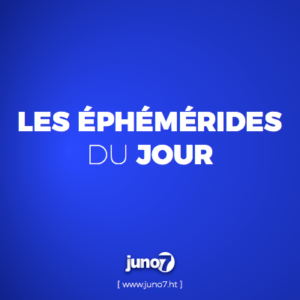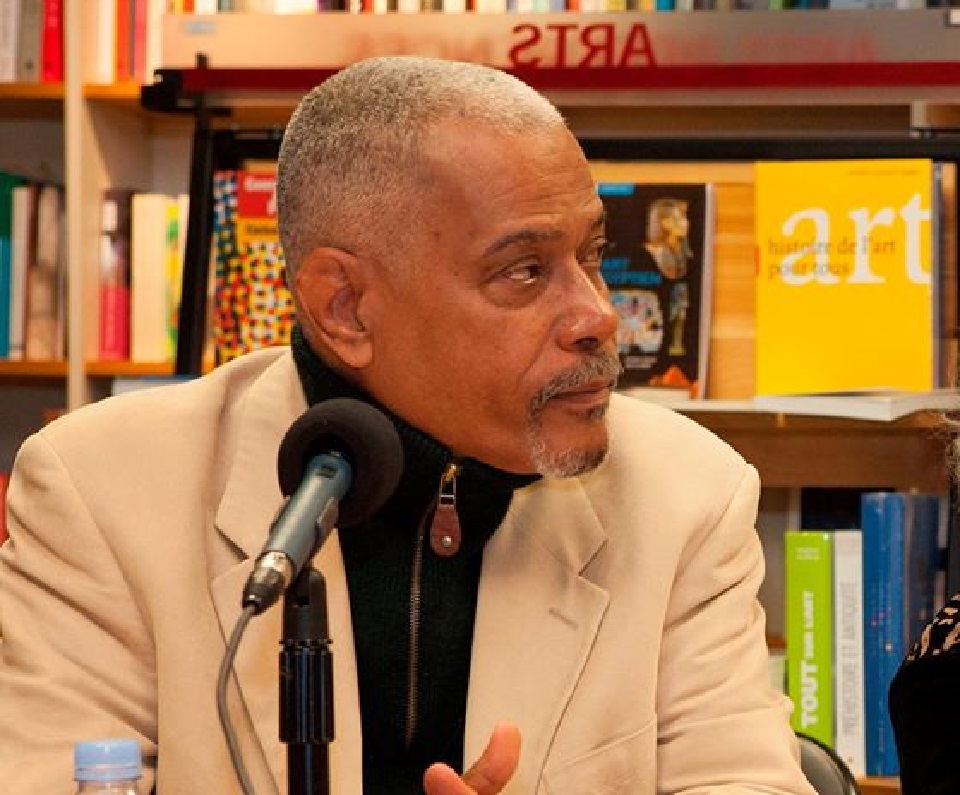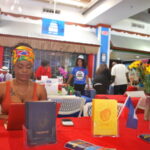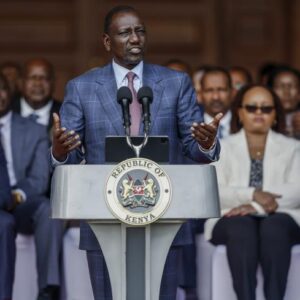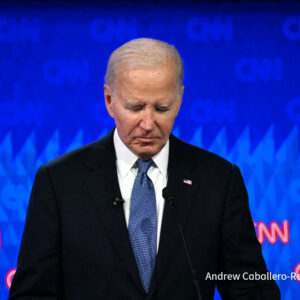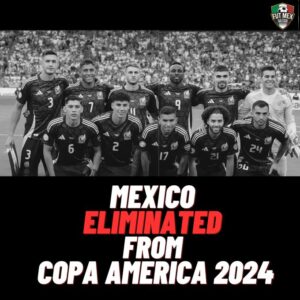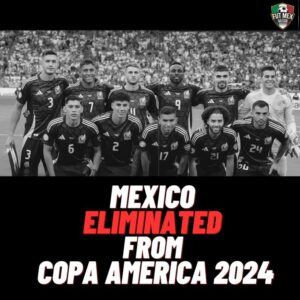By Robert Berrouët-Oriol
Linguist-terminologist
Montreal, May 13, 2024
Originally from Haiti, the poet and novelist Gary Klang has lived in Montreal for around sixty years. He is a major writer of contemporary Haitian French-speaking literature and his work includes collections of poetry, novels, short stories, essays and a play (see his author file on the island hopping site). I met him for the first time in Montreal at Anthony Phelps’ home at the end of my high school studies and since then I have had a great friendship and respect for him. Attentive to the “rustling of language” of which the semiologist and essayist Roland Barthes speaks and listening to the tumult surrounding various bodies of ideas on the French language, Gary Klang has just published in France, in the magazine Le Point dated May 12, 2024, a remarkable “Tribune” entitled “ Inclusive writing, the ultimate bullshit, according to Gary Klang “. The introductory hook of this text is formulated as follows by the magazine’s editorial staff: “ From Quebec, the Haitian writer Gary Klang tells us his dismay at the “disfigurement” of the French language and the “morality” which distresses him. But the humor is there! ».
I recommend careful reading of this “Tribune” and I consider it of public utility that the views conveyed by its author be submitted to the debate of ideas.
The very first thing that catches the reader’s attention, and which seduces him, is Gary Klang’s high mastery of writing: the language he “scripts” is lively, elegant, the ideas are expressed with clarity and he there is no doubt that “the Holy Office of the French language” which he mentions in his text should grant him, on the recommendation of the learned philologists of the French Academy, its highest distinction: the Legion of Honor… Because the Gary Klang’s argumentative verdict can be summed up in two sentences: “ I feel the same anger today towards those (note that I do not add: and those) who want disfigure our beautiful French language with their inclusive writing which I would describe as bullshitsupreme. Ces obscurantists, ces false devoteesin the name of a so-called egalitarian morality that I call morality, take pleasure in distort the language and to kill all fluidity; but everyone knows that there is no beautiful language without fluidity » (bold underline is from RBO). And the author of “ Me native nativefollowed by The Time of the Void »(Éditions Humanitas, 1995) to launch into a dizzying plea against the “ inclusive writing » which he presents as being a “eccentric writing, an evil that spreads ugliness ».
What does the “ inclusive writing » so ardently vilified by Gary Klang? “Inclusive writing (or inclusive writing) means a set of principles and processes promoting inclusion and respect for diversity in texts and making it possible to avoid any form of discrimination, whether based on sex, gender, sexual orientation, race, ethnic origin, disabilities or any other identity factor. The terms “epicene writing”, “egalitarian writing” and “neutral writing”, sometimes used synonymously with “inclusive writing “, more precisely designate writing styles focused on equal representation of genres” (Termium Plus, terminology bank of the Translation Bureau of the federal government of Canada). Examples of sentences written according to “inclusive writing” and gleaned from the Internet: “Dear readers, determined to write differently, do you know that the professors, presidents and agents Are people from our establishment on leave? ; “The client may contact his or her lawyer by telephone when he or she deems it appropriate, or according to the instructions he or she has received from his or her lawyer, if he or she she transmitted such instructions”…
The second thing that catches the reader’s attention is catechetical confinement from the words of Gary Klang at the perimeter of the courtroom, at the location of a tribunal where the crusaders of a sacred and inviolable cause sit: the defense of French in its incontestable “purity”; the defense of French, a sort of immutable museological object in its sparkling diamond adornment, that “ obscurantists, these false devotees “, of the ” obtuse and humorless people ”, undertook to “ deform ” and of ” disfigure » on the grounds of a “ total equality between men and women, but it is not on the terrain of grammar that this battle must be fought » specifies Gary Klang. The charge is strong, as we will have seen, and here the arsonists-disbelievers – all guilty of the crime of lèse-majesté against its majesty the French language – are identified throughout the remarks. Let it be said, the The verdict, published in the holy pages of the magazine Le Point – in the style of a “pontifical bull” which would have done honor to the heralds of the medieval Inquisition – is final and as if engraved in the stone of Canon Law.
Gary Klang’s “Tribune”, beyond the presumptuous radicality of its pontifical, if not pontificating, verdict, holds the attention of the attentive reader by his doctrinaire confinement: I observe that this is ignorance of the real issues and documented debates on inclusive writing coupled with ignorance of the contribution of language sciences to such a debate (see below the “Tribune » of 32 linguists on “inclusive writing”). Because the author’s argument –essentialist and ideological in nature–, is based on clichés and stubborn clichés which, anointed with mothballs, intend to reinforce an idealized image of the French language encased in its supposed “purity” as immutable as it is fantasized. Before proceeding with the critical exploration of Gary Klang’s clichés and clichés against “inclusive writing”, it is necessary to evoke the ideological kinship existing between him, a brilliant left-wing intellectual who fought the Duvalier dictatorship , and the tenors of the xenophobic right of France in what became “The Aya Nakamura Affair”…Gary Klang remains in my eyes a lucid and courageous intellectual, but in his eagerness to attack “inclusive writing”, he is carried away and has embraced, no doubt without wanting to, certain aspects of the essentialist discourse of the right and the extreme right current in France regarding the French language… From Éric Zemmour to Marine Le Pen, from Jordan Bardella to Éric Ciotti and Valérie Pécresse, the French right and far right are up in arms against Aya Nakamura accused of “ deform ” and of ” disfigure » the French language in his songs and who, therefore, would be unworthy of singing Edith Piaf at the next Olympic Games in Paris…
In a dispatch from Agence-France Presse dated March 11, 2024 and taken up by Radio Canada, it is said that “The Franco-Malian star Aya Nakamura, who could sing Édith Piaf at the opening of the Olympic Games (JO) in Paris, is at the heart of a controversy launched in France by the far right. Olympic organizers say they are “shocked” by “racist attacks”. We were very shocked by the racist attacks targeting Aya Nakamura in recent days. Total support for the French artist most listened to in the world, reacted to Agence France-Presse (AFP) the organizing committee of the Paris Olympics. It all started from the French weekly L’Express, who assures that the person concerned would have discussed with President Emmanuel Macron her possible participation in the opening ceremony of the Olympic Games (which will be held from July 26 to August 11, 2024), with the possibility of taking on Édith Piaf.The chef of the State and the most listened to French-speaking singer in the world have not confirmed this rumor, but the idea makes the far right bristle. The Natives, a small group of the far right, published on the networks a photo of a banner held up by ten of its members on the banks of the Seine proclaiming: “There’s no way Aya, this is Paris , not the Bamako market! », in reference to the singer’s hometown, capital of Mali. The expression “There’s no way” is taken from the chorus of his success Djadja, which has more than 950 million views on YouTube. The Agence France-Presse report also notes that “The anti-Aya Nakamura mock the liberties she takes with the French language, as in Djadjamixing vocabulary and images from the four corners of the world (I’m not your whore, Djadja, like, in catchana baby, you die)”.
For his part, Médéric Gasquet-Cyrus, sociolinguist at Aix-Marseille University, author of “ Put an end to false ideas about the French language » (Les Éditions de l’Atelier, 2023)believes that Aya Nakamura, far from “ distort the language and [de] kill all fluidity » as would elsewhere the “ inclusive writing ”, rather nourishes the lexicon and rhythm. She is working on it “to the extent that she has enriched the French language much more than most of the academicians currently in office who only repeat the same things”. Médéric Gasquet-Cyrus also specifies that “The fact that Aya Nakamura or Jul sings by twisting the words and having fun with the sounds, yes, it is a sign of vitality. All writers, all poets have done that. And it is because they renewed the work on the language that the language developed in another direction” (see the article by Annie Vergnenegre dated March 11, 2024, “’’A very backward point of view on language”: a linguist deciphers the controversy surrounding Aya Nakamura “. The perspective is the same in the magazine “Le Parisien”, which recalls what the most popular linguist Alain Rey said with the word “daron”, a 19th century word, resurrected by the suburbs, which Victor Hugo used in “Les Misérables”. Aya Nakamura contributes to the influence of the French “much more than most writers or polemicists… who complain, but who do nothing for the French language, except mourn its pseudo-disappearance, its pseudo-decline, or its past pseudo-glory” ( see the article « Aya Nakamura at the Olympics: after the artists, linguists defend the singer attacked by identity activists », Midi libre, March 16, 2024).
By recalling the xenophobic controversy in what became “The Aya Nakamura Affair” in France, I wanted to show on what register Gary Klang’s remarks and those of the slayers of the Franco-Malian singer operate: the register of ideology, that of fantasized representations of French which must be defended against the deadly attacks of arsonists-disbelievers, “ ces obscurantists, ces false devotees » which, according to Gary Klang, “ want disfigure our beautiful French language with their inclusive writing which I would describe as bullshitsupreme ».
The lexical units used by Gary Klang are of the order of an improbable “ moral catechetical language “, they come under a ” ideological essentialization » from French: (1) our “ beautiful French language » is (2) « disfigured » by (3) “ obscurantists », of the” false devotees » responsible (4) for a “ supreme bullshit “. Therefore, against this vast enterprise of “denaturation” and “atrophy” of the French language, we must strike hard in order to “restore” its “beauty” and “fluidity” to French: a vast program if necessary, which aims to eradicate “inclusive writing” and whose ideological motives make me think, all things considered, of course, of the “Seven Years’ War (1756 – 1763)” … One of the major characteristics of Gary Klang’s “Tribune” – and his use of lexical units from the register of ideology testifies to this – is precisely the emptiness and the heavy conceptual and analytical mediocrity of its « advocacy » which, at no time, is based on the sciences of language. Worse: by ignoring the contribution of linguistics to reflection on “inclusive writing”, Gary Klang implicitly promotes l’ignorance under an epistemological category (see below the “Tribune” of the 32 linguists on “inclusive writing”). I had already noted this recourse to l’ignorance under an epistemological category among certain self-proclaimed “defenders” and other Ayatollahs of Creole, promoters of a “ borlette lexicography » adventurously developed outside the language sciences, outside the methodology of professional lexicography (see my articles « The sinking of Creole lexicography at the MIT Haiti Initiative , Le National, February 15, 2022; “ Creole lexicography put to the test of “English – HaitianCreole computer terms” / Tèmkonpyoutè: anglè – kreyòl” by Emmanuel W. Vedrine », Creole Foundation, June 13, 2023; ” The “borlette lexicography” of the MIT Haiti Initiative has never been able to establish itself in Haiti in the Creole teaching of sciences and techniques , Rezonòdwès, July 4, 2023; “ Understand what the lexicographic language is, where it comes from, where it is going, the mission it must fulfill », Rezonòdwès, April 4, 2024).
L’« ideological essentialization » of the French language inscribed in the hollow of the “Tribune” entitled “ Inclusive writing, the ultimate bullshit, according to Gary Klang »rests on the immutable dogma of the so-called “ essence of languages »: thus, “certain languages are more beautiful / richer / more logical / more universal / more universal because beautiful / more universal because rich / more universal because logical / etc. that others. It was said of Latin, then of Italian, then of French. We say it today about English” (see the blog of Benoît Melançon, retired professor, Department of French-language literature, Faculty of Arts and Sciences, University of Montreal, and co-author of “ Instant Quebecois dictionary » (Editions Fides, 2004 and 2019). ideological essentialization » of language has been deconstructed by leading thinkers and linguists, among others Cécile Canut author of “ A language without quality », work published in 2007 by Éditions Lambert-Lucas with the assistance of the Paul-Valéry University – Montpellier III. On the well-stocked register of the debate of ideas relating to the social uses of language, the exploration of “ ideological essentialization » goes hand in hand with that of “ tongue fetish » which can be found in Gary Klang’s “Tribune”. The notion of ” tongue fetish » is essential to fully understand the “ theological/teleological crusade » launched into the attack on “inclusive writing” by authors of all stripes “alarmed” by the supposed “decline” of the French language which we strive to confine in its “aesthetic attributes” and its pseudo “civilizing mission”. THE ” tongue fetish » was extensively studied by the sociologist Pierre Bourdieu in a famous article written in collaboration with Luc Boltanski, “ Tongue fetish » appeared in the Proceedings of social science research (vol. 1, no. 4, July 1975). Pierre Bourdieu clarifies his thoughts as follows: “When we speak ofthe language without further clarification, we tacitly refer to the official language of a political unit, that is to say to the language which, within the territorial limits of this unit, is held to be the only legitimateand this all the more strongly as the occasion is more official (the English would say formal), that is to say the language written or quasi-written (ie worthy of being written), by agents having authority to write, writers, fixed, codified and guaranteed, by the authority of a body specialists, grammarians, and, more generally, teachers, responsible for instilling (at least) respect for the linguistic code and sanctioning breaches” (the “segment” is held to be the only legitimate » is transcribed in italics by RBO).
Ultimately, should we blindly adhere to “inclusive writing” and promote its supposed healing virtues or should we virulently combat it as the poet and novelist Gary Klang does?
In ” Tribune collective » published on September 18, 2020 in Marianne magazine, « An “exclusive writing” that “imposes itself through propaganda”: 32 linguists list the faults of inclusive writing », the authors intervene in the debate of ideas with perspective. I quote at length this “ Tribune collective »with the aim of contributing to a reflection free from the reductive ruts of the « ideological essentialization “a you” tongue fetish ».
“In addition to its functional defects, inclusive writing poses problems for those who have learning difficulties and, in reality, for all French speakers suddenly deprived of rules and delivered to moral arbitrariness. » Although favorable to the feminization of the language, several linguists consider inclusive writing deeply problematic. (…) Presented by its promoters as social progress, inclusive writing has paradoxically hardly been addressed on a scientific level, with linguistics remaining behind media debates. Behind the concern for a fair representation of women and men in the discourse, inclusivism nevertheless wishes to impose practices relating to ostentatious activism with no other social effect than to produce new divisions. Let us remember the obvious: language belongs to everyone. (…) Inclusivists start from the following postulate: the language would have been “masculinized” by grammarians for centuries and it would therefore be necessary to remedy the “invisibilization” of women in the language. It is an unprecedented conception of the history of languages assuming a “pure” original language that the male gender would have perverted, as if the languages were knowingly developed by the speakers. As for “invisibilization”, it is at best a metaphor but certainly not an objective fact nor a scientific concept. (…) The language could not be either masculinized or feminized by the decision of a group of grammarians, because the language is not a creation of grammarians – nor of grammarians. It is not institutional recommendations that create language, but the use of speakers. The unique and much cited example of the rule of agreement “the masculine prevails over the feminine” does not claim to have any social relevance. It is, moreover, a very rare formulation, if not mythical, since it is not found in any contemporary manual, nor even in Bescherelle in 1835. The words feminine and masculine obviously do not have the same meaning when applied to sex or grammar: finding any social privilege in the agreement of adjectives is a simple figment. (…) Language is not a list of words devoid of context and intentions, referring to essences. (…) Language has its own functioning which does not depend on individual identity claims. Language does not determine thought – otherwise all French speakers would have the same thoughts, beliefs and representations. (…) In French, the spelling is very complex, with its digraphs (eu, ain, an), its homophones (eau, au, o), its silent letters, etc. But standards allow learning by combining phonetics and morphology. However, inclusive practices do not take into account the construction of words: tou.testravailleu.r.se.s create roots which do not exist (tou-, travailu-). These manufactured forms do not relate to any etymological logic and pose considerable problems of division and agreement. (…) All known writing systems are intended to be oralized. However, it is impossible to read the inclusive writing: cher.es does not comment. The discrepancy between writing and speech is no longer based on writing conventions, but on moral rules that speech synthesis programs cannot process and which make texts inaccessible to the visually impaired.
The original version of this “Tribune” signed by 32 linguists was written by the linguists Yana Grinshpun (Sorbonne nouvelle), Franck Neveu (Sorbonne), François Rastier (National Center for Scientific Research of France) and Jean Szlamowicz (University of Burgundy). ).


